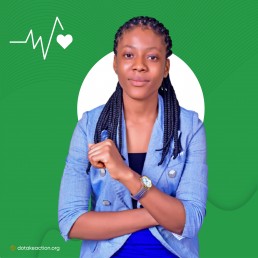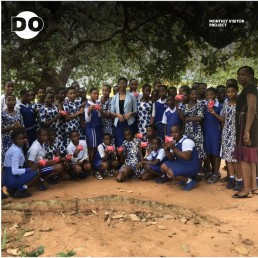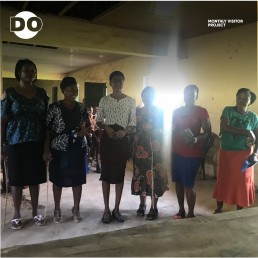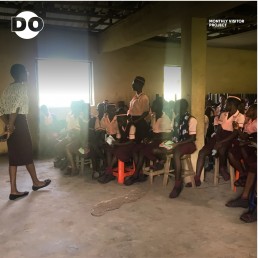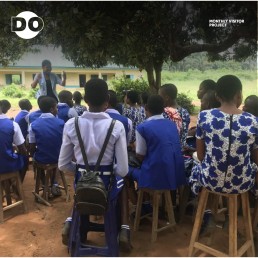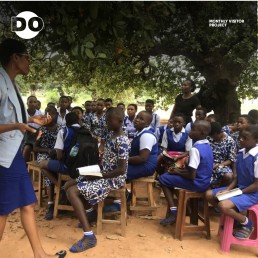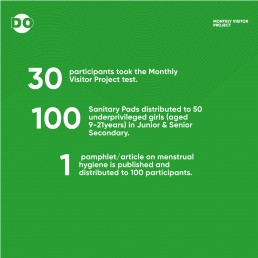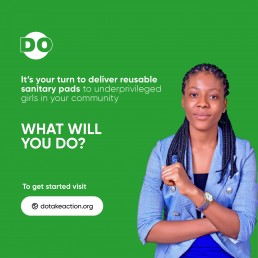THE NEED
Menstruation, or period as it is more often known, every woman has in common. They do, however, provide different stories about how they were informed and prepared.
You’d think that, given the ease with which information is available, every young woman is better aware and prepared when it comes to menstruation. The opposite is true.
1.8 billion women in the world menstruate once a month. Millions of girls, women, transgender men, and non-binary people cannot manage their menstrual cycle in a dignified and healthy manner. Due to high costs, almost 37 million Nigerian teenage girls and women of reproductive age do not have menstrual hygiene products.
The high cost of sanitary pads, a product of the country’s hard economic reality, impedes proper menstrual hygiene management. Sanitary pads cost an average of $1.30 per pack, yet many households live on less than $1.20 per day.
As a result, many women and girls cannot regulate their menstruation due to a lack of resources. Girls and women with disabilities and special needs encounter significant issues with menstrual hygiene. They are disproportionately affected by a lack of access to restrooms with running water and period management materials.
Reproductive and urinary tract infections have been linked to poor menstrual hygiene. On the other hand, underprivileged females don’t have much choice due to the scarcity of inexpensive menstrual products.
22-year-old Esiobu Ngozika Peace saw this menace and decided to do something. Peace is a 300 level student of English Language and Literature Education at the University of Benin who is passionate about the well-being of humanity.
Peace set out on a project, My Monthly Visitor, under the aegis of DO-Take Action. She taught primary and secondary school girls the importance of menstrual hygiene and distributed reusable pads to underprivileged girls who could not afford a pad.
She launched the project under the Good Health and Wellbeing program; a DO program that addresses key challenges in the health care sector by carrying out advocacy campaigns, health outreaches, capacity building workshops and community infrastructure projects that will ultimately improve the quality of health care and impact at least 10 million Nigerians over the next ten years.
The project was carried out at Umunebo and Awuka in Ogbunka, Orumba South Local government Area of Anambra state. The details of the project entail the following;
- A keynote presentation on personal and menstrual hygiene; what to do during menstruation
- Distribution of 100 pads to underprivileged girls
- Distribution of pamphlet/article on menstrual hygiene to 100 participants.
- A self-assessment test to evaluate the girls on their understanding of what has been taught to ensure comprehension and assimilation
In the course of the project, a minimum of 30 participants (aged 9-21years) were sensitized about menstrual hygiene and how to improve on their menstrual hygiene. Fifty underprivileged primary/secondary school girls (aged 9-21 years) received 100 sanitary pads.
Peace is a regular university undergraduate who saw a need in her community and did something about it. Change is not spearheaded by special people but by regular people who go out of their way to effect the little change they can afford. What change are you spearheading in your community?
If you enjoyed the story and would like to read more stories like this, sign up for our monthly newsletter to get notified of new stories.
Also, do well to follow our social media handles for more engaging and entertaining content on issues that affect YOU.
